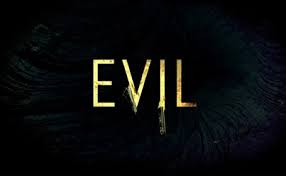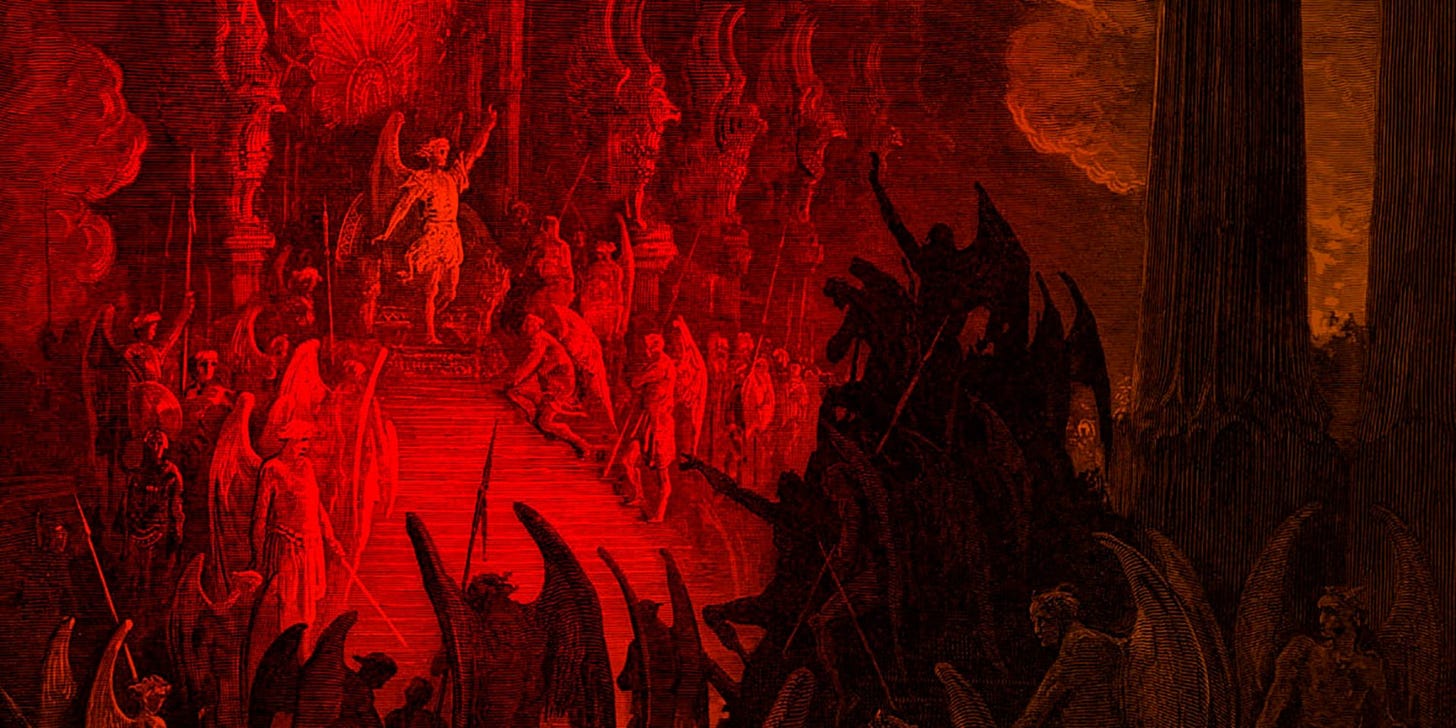Evil
How Do You Deal With Evil
I’m asked this question often, Dr. How do you live your life when you are surrounded by evil?
To be sure, there are evil people and events swirling around us.
We see evidence of evil on a daily basis, perhaps like one client who said he was living “in a bubble” and that it was only a matter of time until evil broke through.
People do things to fend off evil. They build fences, buy guns, set up sophisticated (or not so sophisticated) alarm systems, train guard dogs, wear protective bulletproof vests, store food for a massive calamity, stay awake most of the night in fear that someone might break in. It goes on. Evil is out there, and it’s only a matter of time before it gets to you.
Is the world an evil place?
Some say, Yes
Some say, No
There is no definitive answer because:
First, What is evil? or Who is evil?
If you are in conflict with a long-term partner or a spouse, it becomes very difficult. You feel great animosity towards the spouse - for whatever reason - you might say, My spouse is evil or bad. But, is that really true?
Sure, your spouse is treating you in a way that hurts you, but does that mean your spouse is evil? Probably not, but you never actually know. You could be encountering a truly malevolent force in your spouse. But, the odds are against it, particularly when your spouse or maligned partner might also think you are the evildoer.
What is Evil?
By strict dictionary definition of evil is, as (noun): profound immorality and wickedness, especially when regarded as a supernatural force.
This definition makes several assumptions: First, evil only exists in a moralistic environment, which is “profound immorality.” So, bad events - a natural disaster - happen, or, for example, when a lion chases down an antelope, pounces on it, kills it, and eats it down to a carcass. This is certainly a violent act, but is it evil?
The answer within the above definition is “a qualified no” because it is not immoral for a lion to kill another animal as its prey, but still, it is violent. The lion must live; it is a predator, and it’s programmed into a lion’s DNA so-to-speak; no governing law says that a lion should not kill an antelope. Lions wouldn’t kill an antelope just for sport or fun. This is a wasted effort and not worth a lion’s time. Perhaps a lion doesn’t even think that way. In either case, in a narrow sense, killing is only immoral (or evil) if there is a moral law against it and someone does it.
When the Bible says, “And the lion shall lie down with the lamb.” This is simply a metaphor. The lion has been anthropomorphized into the concept of peace and contentment.
What is Morality?
Morality is (noun) a particular system of values and principles of conduct, especially one held by a specified person or society.
This notion of morality suggests that people, you and me, concocted what it means to be or not be moral. The same is true for evil. We created the concept of evil as something that is “profoundly immoral.”
People decide what evil is.
When I speak of evil in this entry, I describe a “narrow” definition of evil. Evil is something that is judged wrong. Smoking marijuana was for many years, judged wrong. Wrong = Evil. You could go to prison for smoking marijuana.
Today, in many States, it’s legal to smoke marijuana. So, smoking marijuana in those States where it is legal is no longer wrong, it is no longer evil.
Is smoking marijuana now good? This is for you to judge. It depends on how the individual construes the act, its purpose, its consequences, and its impact on self and others. Good and Evil are arbitrary words, so to speak, based on a personal or socially generated morality (morality = a set of values).
When you watch television, someone walks into a shopping mall and starts indiscriminately shooting and killing people. We assume this person is engaged in evil. Given evil's strict definition, we would be right about it, even horrified by this senseless, terribly wrong, and “evil” act.
Guns are part of it, but evil is in the actor (not in the gun, for example).
As they wheel the corpse of the shooter out after the shooter has been killed, we say to ourselves, “There died a truly evil person.” We wouldn’t be wrong because, at many levels, this individual acted in a definitionally consistent evil way. The person, therefore, embodied evil as evidence of the person’s act. But was this person “evil” before the person acted in this way? Did this person have “evil” thoughts?
When we think of the concept of murder, which is biblically defined as an act prohibited because it is “evil,” there are subtle issues to consider. For example, what is the difference between premeditated murder and impulsive murder (as in manslaughter)? I think it is possible to have “evil” oriented thoughts, but the expression of evil is usually adjudicated as the ultimate evidence of evil.
What predisposes a person to an evil act is an important idea, but probably not relevant (for this blog entry) if the person never acts on those thoughts. This, then, gets into what a dispositionally evil person is. Carried to its extreme (as is done in some religious tenets), we might surmise that all of humanity, you and I included, are evil because of our mimetic capacity to commit “murder.” I refer you to another blog entry on mimesis that explores this phenomenon further. For this entry, I will assume that an action defines evil.
Acts of war, criminal activity, and malicious behavior of all sorts are all evil by a strict social definition of the term. These actions are social evidence that evil is with us, and many people around us are evil by this social definition.
Most of the time, evil disregards morality, violates individual rights, invades our privacy, and disrupts our personal sense of self. What does it feel like to be the victim of evil?
Evil can have its morality, like the Mafia and the Mafioso Code.
Psychological Responses to Evil
When you watch what you perceive as an evil event on television, it may be occurring in a far-flung region of the world (Ukraine) or close to home (Texas).
Either way, it impacts you just to watch or hear about it. The more you see or hear, the more it bothers you. Evil usually bothers (or upsets) people and it is usually associated with the concept of “harm” or inflicted damage to self or others.
A client related to me, in tearful words, how hard it was for her to go on with her day knowing that children had been massacred at a school.
“Dr., it’s hard for me to keep on going when I know this kind of evil is going on and the pain it causes to others in such brutal ways. This pain is mostly to innocent of people.”
As she related this story to me, I was trying to connect with her pain, but my psychological pain around this event wasn’t at nearly the depth of experience she was describing at that moment.
This was, in part, because the incident had just occurred and I had been in back-to-back therapy sessions all day long and hadn’t been following the news. I assumed that she was recollecting evil acts from the remote past. Later, I went home, and the news was all over the television. You couldn’t escape it. It was thrust in front of me, every broadcast on radio and TV. I was horrified to see the reality of it. It was then that I fully reacted, and I now understood better the depth of my client’s sadness.
Like her, I had several immediate reactions (to this horrific social evil):
My trust in the world was threatened, a trust I require to orientate myself in the world.
Fundamental values I cherish temporarily collapsed. I was shaken to my foundation, and it was impossible to rebuild at that moment a cohesive explanatory scheme for living in this world.
An illogical fear welled up in me that I was no longer safe, that my stability and security were not all that stable, and this thing could happen to anyone at any time.
My empathy for the victims was clouded by anger at the random, senseless, but also strategic and malicious nature of this particular evil act.
I knew better what she was feeling when she related this to me. It was rising as my intrapsychic conflict.
What to do?
There is nothing one can do. I am powerless to stop this.
But then, as it slowly washed over me, I regained some psychic equilibrium. Even though guns (the instrument of evil in this case) are an object of focus in this regard - a biased object for sure - I understand why people are so angry that everyone has access to them, especially guns designed (assault rifles) to kill other people. I understood at that moment why people are now marching and demonstrating nationally against ownership of these guns and allowing guns to be so accessible to people, especially impaired people who might have a perceived reason to use guns against themselves or others.
Psychological Interventions for Evil
When dealing with evil in psychotherapy, it is useful to reframe the term evil into “the consequences of evil.” This clarifies (at least for me) the nature of evil, what it is and what it is not.
Broad Evil
There are two ways to define evil. 1. In a broad sense, and 2. In a narrow sense. The broad sense of evil focuses on any bad state of affairs, wrongful action, or character flaw. In this regard, the suffering of a headache would be considered evil in the broad sense. It is also, in a broad sense, evil for a parent to tell a child that Santa Claus is real because we all know Santa Claus is a white lie (lying is wrong). Evil in this broad sense would fall into two categories: a) natural evil and b) moral evil. Natural evils are bad states of affairs that do not result from the intentions or negligence of moral agents. An earthquake, as recently occurred in Utah, is an example of a natural evil. Broad moral evil results from moral agents' flawed intentions or even negligence. Broad moral evil includes things like stealing and lying. Sure, there is a great degree of difference between telling a child that Santa Claus is genuine and lying on your tax returns, but there are also some similarities. One is intention. In both cases, the intention is to deceive for an ulterior purpose. This is where a lot of people get tripped up, and, for me, it is the grist of psychotherapy from time to time.
For example, If broad evil includes all natural and morally bad events, the problem of evil is the problem of accounting for this phenomenon because one would assume - in a Judeo-religious framework - that God is always good, that God never lies and does not tolerate evil. If, by this reasoning, the world was created by such an all-powerful, all-knowing, all-good God, there should be no evil in the world. But there is evil in the world. This challenges one’s belief in the existence of an all-powerful, all-knowing, all-good creator. This is one reason why people who confront evil often question their faith in God.
I saw a young man for several years who was from a very devout family. It was a large family of fundamentalist Mormon backgrounds in that members of this family practiced polygamy. They had a deep sense that God exists and they lived by God’s moral code (as they believed it). The young man was a perfectionist, but over time, he became rebellious and started challenging the family values. But then, he changed his heart and began to embrace his family and religion. His developmental nature was confusing and, at times, disheartening. He was very suicidal from time to time and made a few attempts, for which he was hospitalized. One day, the son killed himself (with a gun). This event shattered the parent’s belief system. Why did he do it? How could God have let this happen? I was surprised as well; it was a deeply tragic event.
How to feel after such a traumatic, premature end of a beloved son who had returned to his faith? The family fell into deep turmoil. Everything they believed in was in a shambles. How do we go from here? Whose fault was it? Was this God’s way of punishing the son and the parents? Nothing made sense to the parents after this event. The parents felt that their son’s death was the consequence of living in an evil world. Was it? Who knows for sure?
Narrow Evil
The narrow definition of evil emphasizes all morally despicable acts, characters, or events. In other words, narrow evil has a bad actor, a villain, so to speak. Mass shootings would fall into this category. This definition involves the moral condemnation of an evildoer. In other words, if only human beings were moral agents, only human beings could perpetrate extreme evil acts. Narrow Evil is meant when the term ‘evil’ is used in contemporary moral, political, and legal settings. There is a guilty party with an emphasis on badness and wrongdoing. Here, God punishes evildoers, and evildoers should not get away. “An Eye for an Eye.” With regard to psychotherapy, the narrow framework is for concepts like revenge, retribution, forgiveness, and amnesty. For example, the client who says, “I can never forgive the terrible things this person has done.” The concept of crime and punishment are focal features of Narrow Evil. Dealing with this in psychotherapy is coping with our primal nature. I will describe this later.
A challenge in psychotherapy is when the victim experiences a sense of chronic powerlessness and immobilization in the presence of evil. The philosopher Nietzsche, for example, argued that evil is dangerous because it harms human potential and vitality by promoting the weak in spirit and suppressing the strong (strong in the presence of badness). He extends this reasoning by stating that the powerless and weak (slaves in Nietzsche’s reasoning ) created the concept of evil to take revenge against their oppressors (masters). The slave can’t fight back against the master, and this has been the case throughout history, so the slave creates an interior world that is not accessible to the master. Nietzsche surmises that the terms “good and evil” contribute to an unhealthy view of life, which judges relief from suffering as more valuable than creative self-expression and accomplishment. For this reason, Nietzsche asserts that moving beyond judgments of good and evil (which diminish personal perspective) (see Nietzche 1886-1887 - Beyond Good and Evil…) is preferable to wallowing in these disempowering, human-generated notions of - good and evil - based on a creator that human beings (slaves) created themselves.
I raise this reasoning here, NOT because I endorse it. Still, it seems that when evil, or the umbrella concept that we live in an evil world, immobilizes a person, this can lead to a maladaptive, restricted lifestyle. Thus, evil succeeds by disempowering people who encounter it. I’ve seen this in therapy:
“Dr., this awful thing has happened to me. I was an innocent victim. I can now no longer live my life because of fear of evil.”
I note: Even in my reaction to the Mass Shooting event in Texas (I described above), one feeling I had was “I was no longer safe, that my stability and security were not all that stable, and this thing can happen to anyone any time.”
I note here: Agoraphobia is NOT “fear of going out of your home.” It is, precisely, “A fear of being in situations where escape might be difficult or that help wouldn't be available if things go wrong.” This, in a sense, is a consequence of profound powerlessness in the world. That your world can’t go on any longer because of the presence of something (Evil) that you fear to the point of being immobilized by it.
Treating the Trauma of Evil
Treating a person who is immobilized by the perception of evil is essentially treating trauma. Trauma is: “…the response to a distressing or disturbing event that overwhelms an individual’s ability to cope, causes feelings of helplessness, diminishes sense of self and ability to feel a full range of emotions and experiences.”
In a way, trauma and evil are linked. They both impose constraints on an individual based on a set of experiences or events that have occurred in the past but that continue to exert a psychological force constraining the full range of present-day functioning and, as a consequence, shape the individual’s future well-being and behavior.
(This entry will be continued) June 12, 2022. See "The Devil Made Me Do It!”




